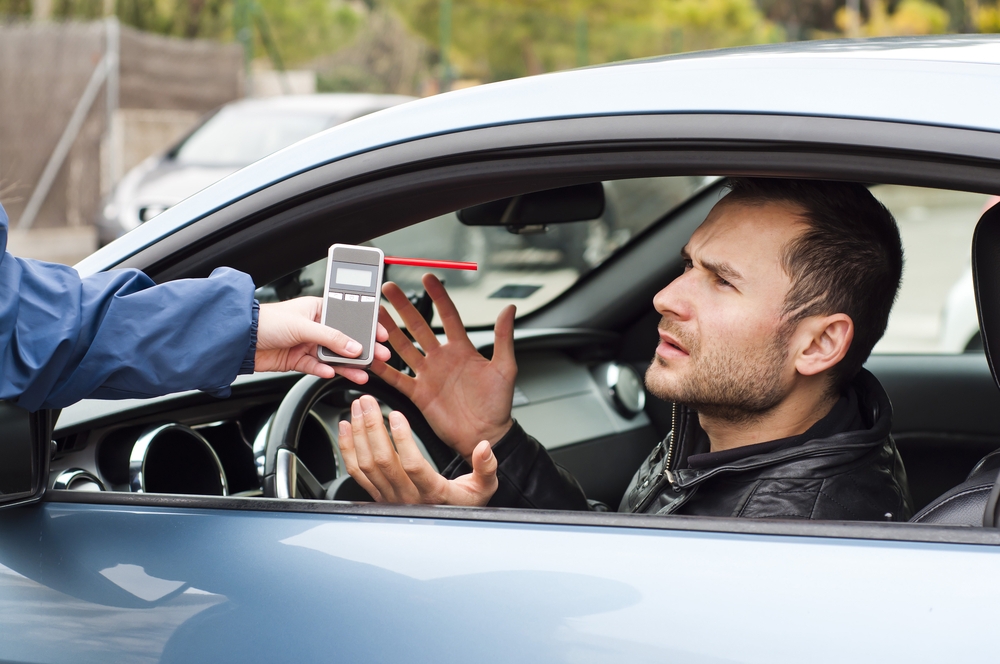
If a law enforcement officer stops you on suspicion of driving under the influence and asks you to submit to a chemical test (breath or blood), you may be wondering: Can I refuse? And if you do, what will happen next?
At Muckler Law, LLC, we don’t just defend cases; we fight for justice. Based in Kingston, PA, and serving clients across Northeastern Pennsylvania, we handle these issues routinely. We understand how overwhelming such a stop can be. In this article, we’ll explain exactly what Pennsylvania law requires, the consequences of refusing a chemical test, how a refusal can affect your DUI matter, possible defenses, and how we can support you every step of the way.
The Legal Basis: Implied Consent in Pennsylvania
Under Pennsylvania’s implied consent law (75 Pa. C.S. § 1547), a driver is deemed to have given consent to submit to one or more chemical tests (breath or blood) when a police officer has reasonable grounds to believe the driver is violating the DUI laws.
Once you’re placed under arrest on suspicion of DUI, the officer may request an official chemical test (for example, at a police station). If you refuse, the statutory consequences follow.
It’s important to understand that a preliminary roadside breath test (a portable device) is generally not covered by the implied consent suspension rules. What triggers automatic license loss is the refusal of the official chemical test after arrest, not simply declining a device on the roadside.
Before requesting the test, the officer must properly inform you of the required warnings (commonly via the DL-26 form): that refusal will result in suspension of your driving privilege, that you have no right to speak with an attorney before deciding whether to take the test, and what the restoration fees may be. If those warnings were not properly given, you may have grounds to challenge the suspension.
Now that we have gone over the implied consent rules, it’s critical to see what happens when you refuse the test.
Penalties for Refusing a Chemical Test
Administrative (PennDOT) Sanctions
Choosing to refuse the requested chemical test following arrest triggers automatic administrative sanctions from the Pennsylvania Department of Transportation (PennDOT), independent of any criminal case. Here’s how they typically work:
- For a first refusal, your operating privilege (your driver’s license) is suspended for 12 months.
- If you have a prior refusal or prior DUI convictions, a second or subsequent refusal carries a suspension of 18 months.
- Restoration fees typically run about $500 for a first suspension, around $1,000 for a second, and up to $2,000 when two or more prior refusals or suspensions exist, depending on your past driving or refusal history.
- The officer must clearly inform you of the suspension and possible fees when requesting the test.
You have only 30 days after PennDOT issues the suspension notice to file your appeal. This appeal is critical because it is the only way to avoid or delay your license suspension. At Muckler Law, LLC, we frequently assist clients in filing these appeals, usually to preserve driving privileges while the suspension is challenged.
Because the suspension is civil/administrative, it remains in effect even if your DUI case is later dismissed or withdrawn or you are acquitted. That means refusing the test triggers license loss, no matter what happens criminally.
In practical terms: Refusing a chemical test in Pennsylvania brings a guaranteed license loss (unless an appeal is successful), significant restoration fees, and loss of driving privileges, even if no DUI conviction occurs.
Criminal Consequences and Refusal’s Impact on a DUI Case
The administrative penalties from PennDOT are only part of the story. Refusing a chemical test can also significantly affect your criminal DUI case.
Use of Refusal as Evidence
In a DUI criminal or summary proceeding, the fact that you refused may be introduced into evidence. While the law does not create a mandatory presumption of guilt, prosecutors routinely argue that your refusal signals consciousness of guilt, insinuating that you declined testing because you believed your BAC was over the legal limit.
Enhanced Criminal Charges and Sentencing
There are enhanced penalties for refusing to comply with a breath test. That being said, because of favorable case law, a refusal to submit to a blood test is not treated as an enhancement unless you also refuse to comply with a lawfully issued search warrant for your blood.
By refusing testing, you also lose the ability to challenge a chemical testing number, machine calibration, or margin of error arguments. That loss of evidence can make it harder to defend against the charge and may result in harsher penalties, including longer jail time, higher fines, or more severe license suspensions, depending on factors such as your BAC level, prior offenses, or whether an accident occurred.
Jail Time, Fines, Probation, License Suspension
If you are convicted of DUI (depending on BAC tier, prior offenses, and other aggravating facts), possible penalties include:
- Jail time (from days to months or more)
- Fines
- Probation
- Mandatory alcohol education or treatment
- Required installation of an ignition-interlock device
- Court-imposed license suspension (in addition to the PennDOT suspension)
Because refusal weakens your defense at the outset, your exposure to these harsher penalties is greater.
Comparing Refusal vs. Submitting to a Test
Many drivers believe refusing a chemical test is a safer move, assuming the state has no test result. In Pennsylvania, however, refusing often leads to greater harm than submitting. Here’s how the choices compare:
- Automatic license loss under PennDOT is triggered regardless of the outcome of the criminal case.
- By refusing, you forfeit the chance to challenge a chemical test result (if there was one) for calibration, accuracy, or margin of error issues.
- Prosecutors highlight your refusal in court.
- Judges and prosecutors may view refusal as aggravating conduct.
- Often, submitting to a breath test gives you at least a number you can work with, while refusing gives you nothing but a separate issue.
In most cases, refusal is a very risky decision.
Possible Defenses to Refusal Sanctions
Refusal does not guarantee defeat. At Muckler Law, LLC, we explore multiple strategies, including:
- Improper or incomplete warning (DL-26 issues): If the officer failed to properly inform you of your rights or the consequences, you can challenge the PennDOT suspension.
- Lack of lawful arrest or probable cause: If the initial stop, detention, or arrest was unlawful, the request for the test may be undermined.
- Physical or medical inability: If you could not provide a meaningful sample due to illness, injury, or other condition, we may argue your “refusal” was not valid.
- Challenge at the PennDOT appeal hearing: We examine the officer’s testimony, logs, and whether PennDOT met its burden of proof in the hearing process.
- Negotiation or plea strategy in the criminal case: Even if the refusal sanction cannot be eliminated, a strong defense may reduce exposure through alternative resolution or mitigation.
How We Help at Muckler Law, LLC
When you come to us after a breath test refusal or DUI arrest in Northeastern Pennsylvania, here’s how we typically proceed:
- Comprehensive case review: We obtain arrest reports, field sobriety test records, chemical test results, DL-26 form, and map every procedural step.
- Administrative appeal handling: We manage your PennDOT license suspension challenge, prepare evidence, and cross-examine where needed.
- Medical defense: If you had a legitimate reason for inability to test, we build that defense.
- Criminal defense strategy: Whether you faced a test result or refused, we use suppression motions, present evidence in your favor, challenge prosecutorial theory, and fight for the best possible outcome.
- Negotiation and plea advocacy: If full dismissal isn’t viable, we work to reduce charges, minimize jail time and fines, and preserve your driving privilege and record.
- Client-first support: At our Kingston, PA office (serving Luzerne County, Lackawanna County, and the greater Northeastern Pennsylvania region), you’ll be treated with respect, kept informed, and advocated for every step of the way.
A Hypothetical Example
To illustrate how refusal might play out:
Suppose Jane is stopped in Luzerne County for erratic driving. The officer arrests her, gives the DL-26 warnings, and requests a station breath test, which Jane declines. Because she refused, PennDOT suspended her license for 12 months. Jane misses the 30-day appeal deadline, so the suspension becomes final. Restoration will require payment of approximately $500 (or more), waiting out the suspension, and meeting any conditions.
Meanwhile, the district attorney prosecutes her for DUI. During the hearing, the prosecutor emphasizes her refusal, arguing she declined testing because she knew her BAC was too high. Without a chemical result to challenge, Jane’s defense options are limited.
This scenario shows: A refusal can significantly increase your risks, with license loss, heavy fees, a tougher criminal case, and long-term consequences.
What You Should Do if You Face a Test Refusal Situation
If you are asked to take a chemical test in Pennsylvania, keep these tips in mind:
- Stay calm and respectful. Don’t escalate or antagonize the officer.
- Understand that refusing is within your rights, but it carries serious consequences.
- Pay close attention to the DL-26 warnings. If you were not properly informed, that may help your defense.
- Avoid unnecessary delay or behavior that would be deemed “refusal” under Pennsylvania law.
- Document what you can: the officer’s statements, the sequence of events, the warnings given, and your responses.
- Contact an experienced DUI defense attorney immediately; the administrative appeal window is short, and early involvement matters.
Contact Muckler Law, LLC Today
If you or a loved one has refused a breathalyzer or chemical test in Pennsylvania, or are facing DUI charges and a license suspension, don’t face this on your own. At Muckler Law, LLC, we stand ready to bring our knowledge, local insight, and aggressive advocacy to your defense. We don’t just defend cases; we fight for justice.
Call 570-908-4069 for a free consultation or contact us online.
Let us fight for your rights, protect your license, and guide you through every stage of the process.
Disclaimer: The articles on this blog are for informative purposes only and are no substitute for legal advice or an attorney-client relationship. If you are seeking legal advice, please contact our law firm directly.


